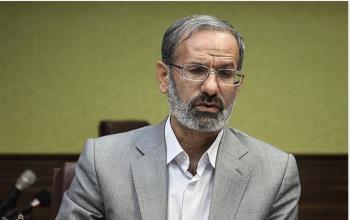Alwaght- As Hillary Clinton continues to make her case for the US presidency, which is allegedly a democratic process, the candidate’s view of democracy is itself dubious. While Clinton is not alone on this one, a recent leak puts her under the spotlight.
The British Observer revealed earlier this week that Hillary Clinton suggested that the 2006 Palestinian parliamentary election should have been manipulated to prevent a Hamas victory.
In a recording released on Wednesday, the presidential hopeful can be heard saying that the US’ push for election was a fault in a meeting with the editorial board of the Jewish Press during her campaign for re-election into senate.
"I do not think we should have pushed for an election in the Palestinian territories. I think that was a big mistake. And if we were going to push for an election, then we should have made sure that we did something to determine who was going to win," the 2016 Democrat’s candidate said.
Anti-democracy
This statement, which calls for previously determining of the winner of an election that is supposed to be democratic and that is meant to be a reflection of the people’s voices, casts a shadow over the American ideals of democracy. Many would even argue that rigging an election for one’s own political interests would be anti-democratic. Of course, those who would say so cannot possibly survive American politics.
Prevalent among US officials is an instrumental view on the notion of democracy. What counts as democracy but does not serve US interest, is deemed the opposite, while the opposite is labelled as the true.
Clinton’s recently revealed proposition is just one such example among many.
The United States has a long record of carrying out undemocratic policies in the name of democracy.
War Democracy
For one, Washington has waged pricy wars on Third and Second World countries in order to establish ‘democracy’ there. Of course, the real reason always goes back to the US policy of supremacy and hegemony and democracy is just a tool to achieve that. Not only does it provide an excuse before the American public, but it also works to give false hope to people in these countries.
In 2003, the Bush administration invaded Iraq basing its rationale for war on the allegation that the country possessed weapons of mass destruction, none of which have been found since then. Indeed, Saddam Hussein was a dictator to his people but the US did not bear this fact as a motive. However, officials used this reality as another rationale for the war: ending the dictatorship and delivering a democracy package to the Iraqi people.
Saddam was toppled. US troops spent eight years in Iraq. Yet, we can’t see the democracy model in the West Asia that the US had allegedly meant to turn the country into.
Not to mention the suffering, torture, killings that Iraqis went through under the US invasion, Iraq is far from being an example of democracy, rather the US invasion paved the way for the emergence of terrorist group, including the notorious ISIS . In addition, it remains deeply entrenched in a war against terrorism and wrangled by political instability.
Prior to the war on Iraq, the War on Terror in Afghanistan had also received criticism. The Taliban regime was overthrown in 2001 but the Americans have failed to establish a liberal democratic political system in the country.
The US government made sure to establish a centralized presidential system of government in Afghanistan. Then it imposed Hamid Karzai as president while the five major democratic coalitions were rejected representation. This does not seem to adhere to the values of democracy that circle around the notion of fair representation of the people’s will. This falls into the US government’s definition of democracy.
In these two examples of how the Washington used the concept of exporting democracy to the world, the targeted governments had at least been dictatorships that the world is now rid of.
Coup Democracy
On the other hand, the US has also been trying to ‘promote democracy’ by toppling democratically- elected governments.
In 2009, a military coup ousted the democratically elected president Manuel Zelaya.
“Thousands of indigenous activists, peasant leaders, trade unionists, journalists, environmentalists, judges, opposition political candidates, human rights activists, and others” have been murdered since then, according to the Huffington Post.
Zelaya provided many benefits for his country during his tenure including raising minimum wage; providing free school lunches, milk for children, pensions for the elderly and more scholarships for students; building new schools; and subsidizing public transportation.
He was also planning to organize an assembly to replace the 1982 constitution on the day of the coup.
“The leader of the coup, Honduran General Romeo Vásquez Velásquez, was a graduate of the notorious School of the Americas, a U.S. Army training program nicknamed 'School of Assassins' for the sizable number of graduates who have engaged in coups, as well as the torture and murder of political opponents,” the newspaper wrote.
Massive nonviolent protests called for the return of Zelaya but then-Secretary of State Hillary Clinton was keen to prevent him from reassuming office.
In her memoir Hard Choices, Clinton makes a confession: “In the subsequent days [after the coup] I spoke with my counterparts around the hemisphere, including Secretary Espinosa in Mexico. We strategized on a plan to restore order in Honduras and ensure that free and fair elections could be held quickly and legitimately, which would render the question of Zelaya moot.”
However, many contend that the elections were far from free and fair, as they were held under military rule and overshadowed by violence and media censorship.
In 2014, the US “brokered” a coup in Ukraine. President Barack Obama told CNN that Washington orchestrated a “transition” which led to a nationalist government and the war in eastern Ukraine by Petro Poroshenko. The coup was marked with violent events in the capital, Kiev, culminating in the ousting of Ukrainian President Viktor Yanukovych who won his seat in the 2010 election.
“Obama’s statement is reiterating something that the world public opinion already knew — the US was involved in the coup of [ex-Ukrainian President] Viktor Yanukovych from the start. History shows us that the US has overthrown numerous governments in Latin America, Asia and Africa and replaced them with leaders that ruled with a fascist ideology that proved useful for Washington’s geopolitical interests,” independent researcher and writer Timothy Alexander Guzman told Sputnik News.
Bomb Democracy
Three years earlier, Clinton’s role in the Libyan chaos emerged to light.
The New York Times published a report earlier this year, featuring many officials involved in the mission that overthrew the former Libyan leader Muammar Gaddafi.
The report exposed Clinton as a promoter of the war on Libya. She was positive that overthrowing Gaddafi would lead to a democracy, according to the sources.
However, the state of Libya today is proof of what Clinton’s notion of democracy is, leaving a once prosperous nation in ruins for the sake of its natural resources.
After NATO bombed the North African country for seven months, Libya was rendered a failed state infested with extremist groups. ISIS, Ansar al-Sharia, and other militant groups now control most territories with the official government present only in the eastern parts of the oil-rich Arab state.



























